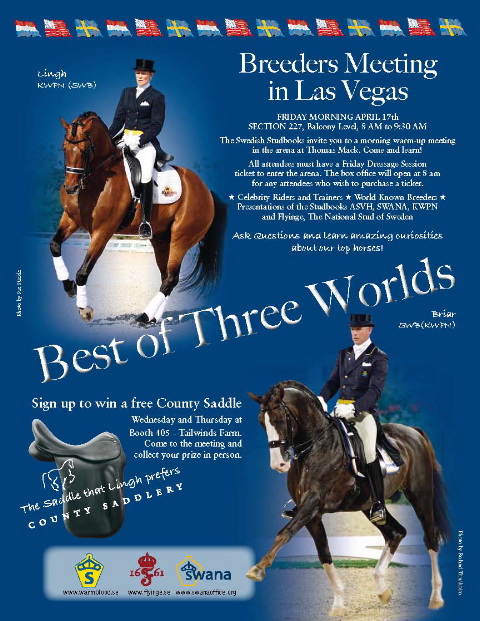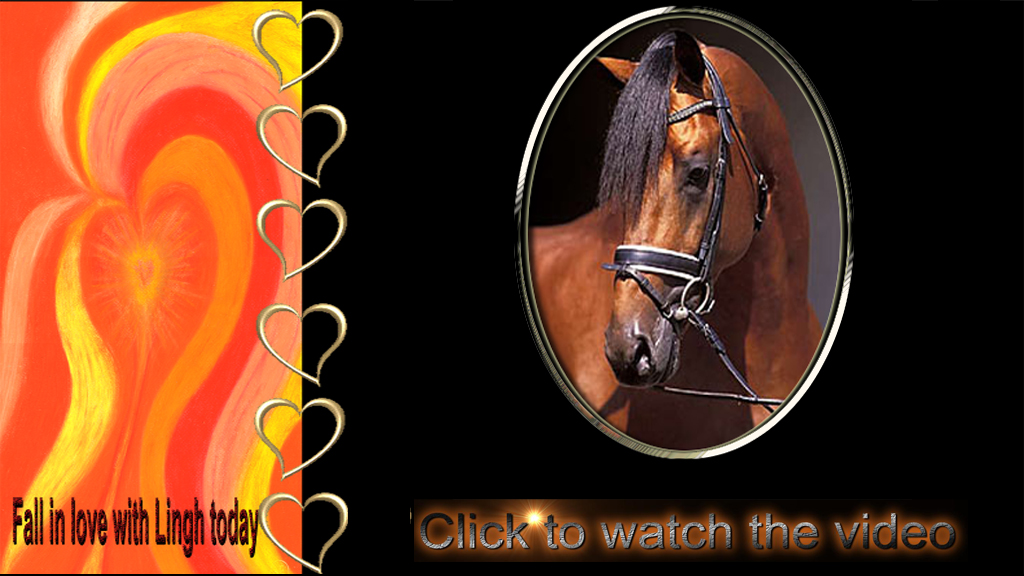| Written by Diana DeRosa |
| Friday, 17 April 2009 21:17 |
| Friday was a different sort of World Cup day because there were so many facets. There was no World Cup dressage, just show jumping and that wasn’t until the evening session. Instead there were all sorts of opportunities to learn, reminisce and discuss ways to improve our world of horses.Brentina Says GoodbyeIt seems appropriate that rather than start at the beginning of the day to instead talk about the one event that left no dry eyes in the audience. It was a sad yet heartfelt moment when Debbie McDonald brought Brentina into the arena for her last time. It was time for Brentina to retire. She’s given Debbie and her owners Parry and Peggy Thomas a lot to remember from winning the World Cup in 2005 to her memorable performances at past World Equestrian and Olympic Games.Brentina was one horse that truly helped U.S. dressage gain recognition in a world that is often dominated by the Germans. Through Debbie’s passion and devotion to the sport and her pairing with Brentina they gained the love of our country. It was because of those reasons that tears and even sobs could be heard throughout the crowd as Debbie herself wiped away her own tears. No doubt she along with the rest of us were reflecting on what a magnificent pair these two have been.
This was certainly a magical combination but now at 18 she’s paid her dues and it’s time to retire. Starting From The Morning Now that I’ve put in my bid for what I considered to be the best part of the day, I’ll start at the beginning. The morning began with a breed forum put on by Flyinge, the Swedish National Stud. While I won’t get into too many specifics the concept was to have a “unique breeders’” meeting designed to discuss how to maximize the potential for breeders. Karin Reid Offield, owner of the well known KWPN stallion Lingh, was the instigator and creator behind the organization of this meeting. The theme of the meeting was the Best of Three Worlds and that connection was Holland, Sweden and the U.S. It was a chance to get breeders and non breeders alike to discuss ways to help each other. In 2006 Karin purchased Lingh with visions and dreams of Olympic fame. When her horse got hurt her vision changed and so she looked for a place to stand him and found Flyinge. Karin recognized that there was a need to get a connection between the users and producers and so the morning meeting brought people together with that same interest. There’s no question that the U.S. is years behind these other countries when it comes to breeding but we are quick learners. Among the speakers was Karl-Henrik Heimdahl, Flyinge breeding manager. As a vet who saw horses from that perspective Karl got fed up with all the problems he saw in the horses he was vetting and wanted to see that improve. It was because of this that he got caught up in the breeding world. Flyinge is a perfect example of how breed organizations need to constantly change and evolve. Over the years Flyinge has changed from a stud farm whose purpose was to provide stallions to Kings to one that provides horses for all levels of horse enthusiasts. Part of that was education, something that Karl feels is critical to help improve breeding. While education was one suggestion, another was for the breeders to find young riders to show their horses in order to help gain recognition for the breed. Emmy de Jeu, a well known breeder from Holland, supported that theory and added, “it cost money but it helps you get known and ultimately get more money for your young horses.” While good stallions are critical to any breed program, Emmy also puts a lot of emphasis in the mares. “I look for knowledge and character in my mares. Nowadays most of the horses go to amateur riders and it is important that they can get along with the horse and have a lot of fun with it. In addition to good gaits and good conformation I look for electric movements.” Tish Quirk, who is a U.S. breeder, is working diligently to support programs that help to promote breeding. In addition to the Young Jumper Championship and recently a Dressage Futurity the latest initiative is a Hunter Development Incentive Fund started by the USHJA. Tish had another suggestion noting that there should be some effort put into mentor programs where retired breeders could teach young enthusiastic people to also teach. Dirk Wilhelm Rosie, a Dutch breeding expert who had been with the KWPN for 12 years, made a very interesting comment. “Stud books should be open. I don’t think of them like brands of cars. They are the developers and mechanics of cars not the salesman. They should be there to help the breeders.” A focal point of the meeting was Jan Brink whose stallion Briar was being retired from competition after this World Cup. As a pure Swedish Warmblood his success over the years in the dressage arena bodes well for the breeding program in Sweden. |



